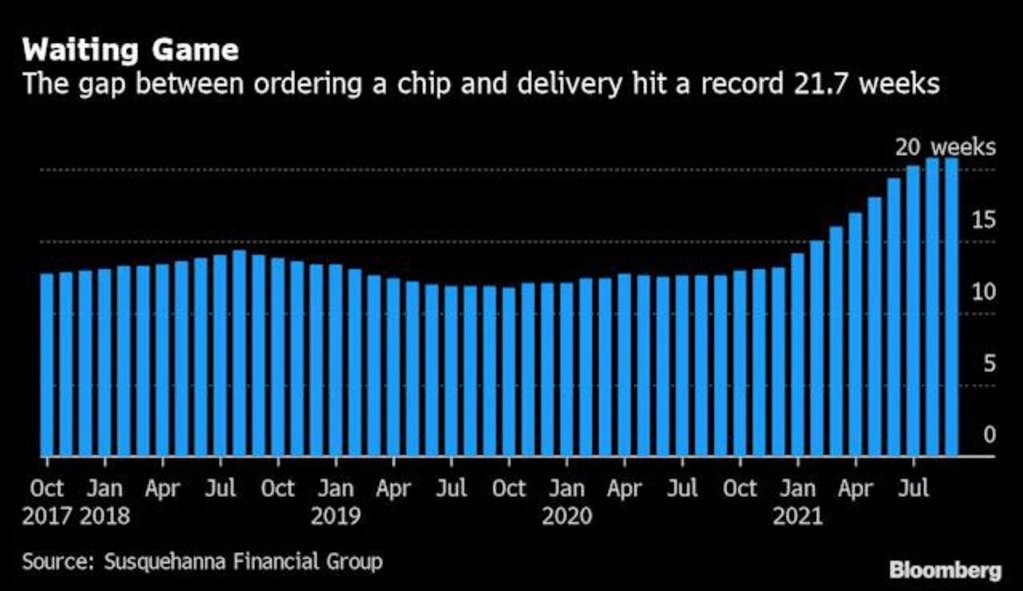HIGHLIGHTS
- Two main component suppliers, Broadcom and Texas Instruments, are struggling to supply enough components, making this goal of producing 90 million new iPhones in the last 3 months difficult to achieve.
- New iPhone models go on sale in September, however, users who order on Apple’s website must wait at least a month to pick up the device.
- Apple is still likely to meet iPhone demand reaching users during the peak shopping season at the end of the year.
FULL ARTICLE
Struggling with chip supply disruptions
Despite being one of the world’s largest chip consumers, Apple is struggling with disruptions to chip supply, which is wreaking havoc on industries around the world.
Two main component suppliers, Broadcom and Texas Instruments, are struggling to supply enough components, making this goal of producing 90 million new iPhones in the last 3 months difficult to achieve. As a result, Apple may cut its expected iPhone production target for 2021 by up to 10 million units due to prolonged chip shortages.
The chip crisis is getting worse. Lead time, the gap between semiconductor chip orders and delivery times, rose for a ninth straight month to an average of 21.7 weeks in September, according to Susquehanna Financial Group, a private trading and technology firm.

Apple also faces a components shortage from other suppliers. Apple supplier TPK Holding said they had to adjust its production schedule because of local power-related restrictions. Many chip manufacturers have warned that demand will still exceed supply in the near future.
Apple’s iPhone supply pressures
The component shortage is putting great pressure on Apple to meet the iPhone demand of users. New iPhone models go on sale in September, however, users who order on Apple’s website must wait at least a month to pick up the device. Some Apple Stores are also out-of-stock.
Orders are expected to be delivered around mid-November, so Apple is still likely to meet iPhone demand during the peak shopping season at the end of the year, which has always been the highest revenue-bringing period for Apple, expected to be around $120 billion.

In addition to the iPhone, Apple also doesn’t produce enough Apple Watch Series 7 and other products for sale. Earlier this year, Apple also warned it would face limited supply of iPhones and iPads in the quarter ending in September.
Faced with that situation, the US Commerce Department is requiring chipmakers to provide a series of key answers by November 8, but that is facing resistance from lawmakers. and leaders of Taiwan, Korea.
Huyen Tu
FURTHER READING
Taiwan Says Peace Crucial to Chip Supply as China Pressure Grows













